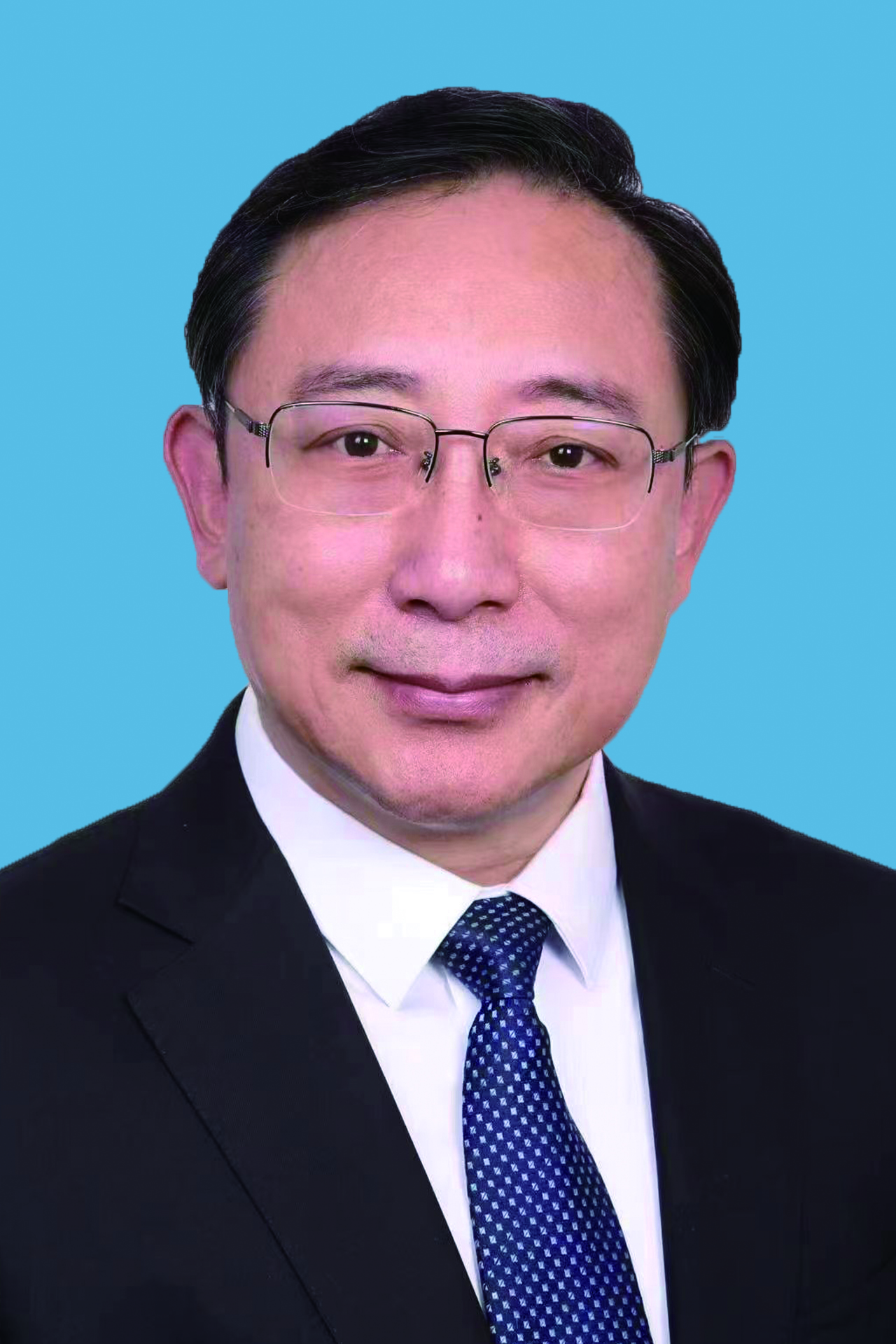


Ph.D.Supervisor
Email: caoxt@immunol.org
Phone: 010-65105001
Affiliated State Key Laboratories: Immunology
Technology field and major achievements: Dr. Xuetao Cao is the Professor and Director of Center for Immunotherapy of Chinese Academy of Medical Sciences (Beijing, China), and Founder Director of National Key Laboratory of Medical Immunology (Shanghai, China). He served Chinese Academy of Medical Sciences as President during 2011-2017, Peking Union Medical College as President during 2015-2017, Nankai University as President during 2018-2021. He was elected as member of Chinese Academy of Engineering (2005), German Academy of Sciences (2013), US National Academy of Medicine (2017), American Academy of Arts and Sciences (2018), UK Academy of Medical Sciences (2016), French Academy of Medicine (2014) and EMBO (2015). He was President of Chinese Society for Immunology (2006-2014), President of Chinese Society for Biomedical Enginerring, President of Federation of Immunological Societies in Asia and Oceania FIMSA (2012-2015) and President of Global Alliance for Chronic Diseases GACD (2013-2015). He is Founder and Editor-in-Chief of Chinese Journal of Cancer Biotherapy, Joint Editor-in-Chief of Cellular and Molecular Immunology. He also serves on the editorial or advisory board of a number of international journals including Immunity, Cell Research, etc. Prof. Xuetao Cao's major research interests are innate immunity and inflammation, tumor immunology and immunotherapy. His group has made contributions to the understanding of innate signaling in immunity and inflammation, identification of regulatory cell subsets and new molecules in dendritic cell (DC)-initiated immune response, and translational research of cancer immunotherapy such as developing cancer vaccines and small-compound antitumor drugs. As the corresponding author, Professor Cao has published a series of research articles and reviews in the top ranking biomedical journals including Science, Nature, Cell, Cancer Cell, Immunity, and Nature Immunology. Prof. Cao's group has also established a stable cooperative relationship with top laboratories in China and abroad such as Oxford University and Karolinska Institute, providing support for regular international academic exchanges.
Representativeness:
1. Henan Xu, Xiao Zhang, Xin Wang, Bo Li, Hang Yu, Yuan Quan, Yan Jiang, Yuling You, Yan Wang, Mingyue Wen, Juan Liu, Min Wang, Bo Zhang, Yixian Li, Xuan Zhang, Qianjin Lu, Chu-Yi Yu, Xuetao Cao*. Cellular spermine targets JAK signaling to restrain cytokine-mediated autoimmunity. Immunity, 2024, S1074-7613(24)00279-6.
2. Qingzhu Shi, Qicong Shen, Yanfang Liu, Yang Shi, Wenwen Huang, Xi Wang, Zhiqing Li, Yangyang Chai, Hao Wang, Xiangjia Hu, Nan Li, Qian Zhang*, Xuetao Cao*. Increased glucose metabolism in TAMs fuels O-GlcNAcylation of lysosomal Cathepsin B to promote cancer metastasis and chemoresistance. Cancer Cell, 2022, 40(10), 1207-1222.
3. Yujia Wang, Pin Wang, Yunkai Zhang, Junfang Xu, Zhiqing Li, Zemeng Li, Zhongcheng Zhou, Lin Liu, Xuetao Cao*. Decreased Expression of the Host Long-Noncoding RNA-GM Facilitates Viral Escape by Inhibiting the Kinase activity TBK1 via S-glutathionylation. Immunity, 2020, 53, 1168-1181.
4. Yang Liu, Yuling You, Zhike Lu, Jiang Yang, Panpan Li, Lun Liu, Henan Xu, Yamei Niu, Xuetao Cao*. N6-methyladenosine RNA modification–mediated cellular metabolism rewiring inhibits viral replication. Science, 2019, 365, 1171–1176.
5. Lei Wang, Mingyue Wen, Xuetao Cao*. Nuclear hnRNPA2B1 initiates and amplifies the innate immune response to DNA viruses. Science, 2019, 365,6454.
6. Juan Liu, Xiaomin Zhang, Kun Chen, Yujie Cheng, Shuxun Liu, Meng Xia, Yali Chen, Ha Zhu, Zhiqing Li, Xuetao Cao*. CCR7 Chemokine Receptor-Inducible lnc-Dpf3 Restrains Dendritic Cell Migration by Inhibiting HIF-1α-Mediated Glycolysis. Immunity, 2019, 50, 600–615.
7. Henan Xu, Yan Jiang, Xiaoqing Xu, Xiaoping Su, Yang Liu, Yuanwu Ma, Yong Zhao, Zhongyang Shen, Bo Huang, Xuetao Cao*. Inducible degradation of lncRNA Sros1 promotes IFN-γ-mediated activation of innate immune responses by stabilizing Stat1 mRNA. Nature Immunology, 2019, 20,1621–1630.
8. Yan Gu, Yanfang,Liu, Li Fu, Lili Zhai, Jie Zhu, Yanmei Han, Yingming Jiang, Yi Zhang, Peng Zhang, Zhengping Jiang, Xiang Zhang, Xuetao Cao*. Tumor-educated B cells selectively promote breast cancer lymph node metastasis by HSPA4-targeting IgG. Nature Medicine, 2019 Feb;25(2):312-322.
9. Qicong Shen, Qian Zhang, Yang Shi, Qingzhu Shi, Yanyan Jiang, Yan Gu, Zhiqing Li, Xia Li, Kai Zhao, Chunmei Wang, Nan Li, Xuetao Cao*. Tet2 promotes pathogen infection-induced myelopoiesis through mRNA oxidation. Nature, 2018, 554, 123–127.
10. Minghong Jiang, Shikun Zhang, Zongheng Yang, Hongyu Lin, Jun Zhu, Lun Liu, Wendie Wang, Shuo Liu, Wei Liu, Yuanwu Ma, Lianfeng Zhang, Xuetao Cao*. Self-Recognition of an Inducible Host lncRNA by RIG-I Feedback Restricts Innate Immune Response. Cell, 2018, 173, 906–919.
11. Xiaoqing Xu, Jia Xu, Jiacheng Wu, Ye Hu, Yanmei Han, Yan Gu, Kai Zhao, Qian Zhang, Xingguang Liu, Juan Liu, Bing Liu, Xuetao Cao*. Phosphorylation-Mediated IFN-γR2 Membrane Translocation Is Required to Activate Macrophage Innate Response. Cell, 2018, 175, 1336–1351.
12. Yanmei Han, Qiuyan Liu, Jin Hou, Yan Gu, Yi Zhang, Zhubo Chen, Jia Fan, Weiping Zhou, Shuangjian Qiu, Yonghong Zhang, Tao Dong, Ning Li, Zhengping Jiang, Ha Zhu, Qian Zhang, Yuanwu Ma, Lianfeng Zhang, Qingqing Wang, Yizhi Yu, Nan Li, Xuetao Cao*. Tumor-Induced Generation of Splenic Erythroblast-like Ter-Cells Promotes Tumor Progression. Cell, 2018, 173(3), pp. 634–648.
Others: The research group is also the base of Immunotherapy Center of Chinese Academy of Medical Sciences (IC, CAMS) and Translational Immunology Center (CTI) of CAMS-Oxford Institute (COI).Immunotherapy Center was established by Professor Xuetao Cao in 2015 which focuses on the vaccine design, adoptive cellular immunotherapy, antibody development, and preparation of recombinant proteins in the control of cancer, infection diseases and autoimmune diseases. The goal of IC is to establish an integrated immunotherapy platform for prevention and treatment of “chronic diseases”, and perform the innovative research about the pathological mechanism and immunotherapeutics of immune disorders, and strengthen the translation of basic research to clinical practice. COI is China’s first medical sciences institute in the UK hosted by Oxford University, which was established in 2013 under the direction of Professor Xuetao Cao from CAMS and Professor Tao Dong from Oxford University. The Institute provides an opportunity for collaborations and exchanges between the researchers in Oxford and CAMS, and will build a platform for Sino British medical cooperation and lead to medical advances by combining the strengths of both partners. The Institute aims to develop innovative medicines to tackle infectious diseases and cancer by focusing on a number of key areas including the development of novel immunotherapies and vaccine strategies against cancer and infectious disease.